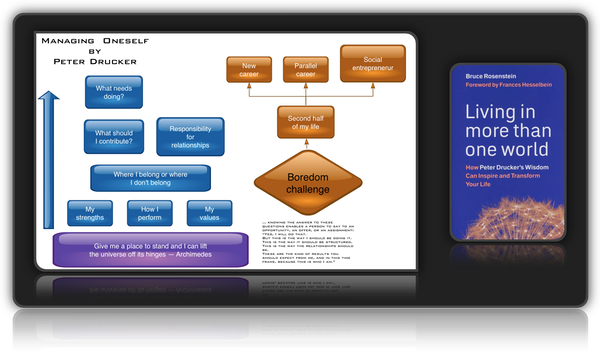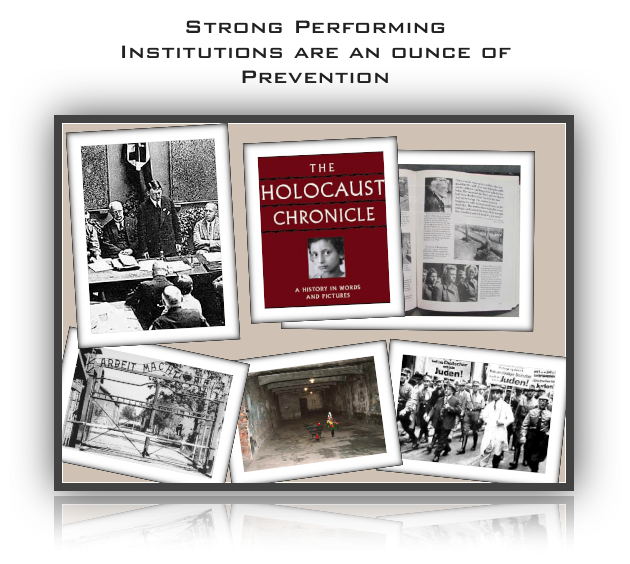At first sight, the decision may appear only to concern career and livelihood.
“What shall I do?” is the form in which the question is usually asked.
But actually it reflects a demand that the individual take responsibility for society and its institutions.
“What cause do I want to serve?” is implied.
 The World is Full of Options
The World is Full of Options
 Carefully choosing your nonprofit affiliations (beware of scams and inside-out bureaucracies because society suffers the consequences and you are part of society.
Carefully choosing your nonprofit affiliations (beware of scams and inside-out bureaucracies because society suffers the consequences and you are part of society.
If they don’t produce the desired results outside of themselves then we have to pay a second or a third or a fourth … organization until we get what is needed.)
And underlying this question is the demand the individual take responsibility for himself.
 Managing Oneself then …
Managing Oneself then …
 The Effective Executive: Preface
The Effective Executive: Preface
“What shall I do with myself?” rather than “’What shall I do?” is really being asked of the young by the multitude of choices around them.
The society of organizations forces the individual to ask of himself:
 “Who am I?”
“Who am I?”
 “What do I want to be?”
“What do I want to be?”
 “What do I want to put into life and what do I want to get out of it?”
“What do I want to put into life and what do I want to get out of it?”
read more on how can the individual survive …
The Age of Discontinuity:
Guidelines To Our Changing Society
enhanced by bobembry
... replace the quest for success with the quest for contribution.
(to the society of organizations moving in time — above)
The critical question is not, “How can I achieve?”
but “What can I contribute?”
The Daily Drucker
You can’t design your life around a temporary organization

Successful careers are not planned
They develop when people are prepared
for opportunities
because they know
their strengths,
their method of work, and
their values.
Knowing where one belongs
can transform an ordinary person
—hardworking and competent but otherwise mediocre—
into an outstanding performer.
Larger
Managing Oneself and Living in More than One World
To get the benefits you have to calendarize these
“What do you need to learn to get the most out of your strengths?”
The World is Full of Options
“What do you need to learn so that you can decide where to go next?”
Managing in a Time of Great Change
The three types of intelligence discussed in The Prince by Niccolò Machiavelli

Types of behavior that can be observed …

… “Power has to be used.
It is a reality.
If the decent and idealistic toss power in the gutter, the guttersnipes pick it up.
If the able and educated refuse to exercise power responsibly, irresponsible and incompetent people take over the seats of the mighty and the levers of power.
Power not being used for social purposes passes to people who use it for their own ends.
At best it is taken over by the careerists who are led by their own timidity into becoming arbitrary, autocratic, and bureaucratic.”
— How Can The Individual Survive?
The Age of Discontinuity: Guidelines To Our Changing Society
by Peter Drucker
What do you want to be remembered for?
In Landmarks of Tomorrow, Peter Drucker wrote “everyone is an understudy to the leading role in the drama of human destiny” and the “great roles are not written in the iambic pentameter or the Alexandrine of the heroic theater.”
They are, instead, “prosaic — played out in one’s daily life, in one’s work, in one’s citizenship, in one’s compassion or lack of it, in one’s courage to stick on an unpopular principle, and in one’s refusal to sanction man’s inhumanity to man in an age of cruelty and moral numbness.”
![]()
